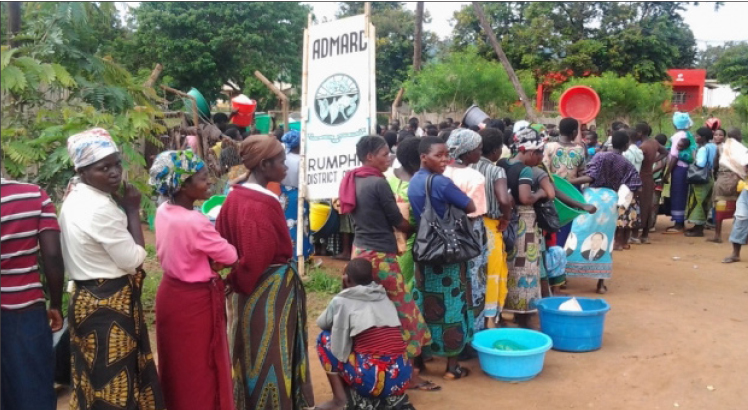NPC wants state in wealth creation
The National Planning Commission (NPC) has warned that Malawi will not stop begging and borrowing to meet its obligations if the State does not facilitate and play an active role in creating wealth.
In his write-up on the DG’s Corner published on the commission’s website, NPC director general Thomas Chataghalala Munthali observed that even if the economy grows by small margins of about two percent against the required seven percent, investing in the right things gives hope to the economy.

He said: “The right things include having a developmental State that allows Agricultural Development and Marketing Corporation to be reformed into a viable commercial entity with little political influence.
“Establishment of our own mining company that has a strong alliance with the private sector for risk sharing so that we get to know where our minerals are going, at what price they have been sold and the forex that has been repatriated back to Malawi.”
Munthali said investing in the right things also includes having a development corporation, such as a reformed Malawi Development Corporation to act as a trailblazer in all the strategic sectors of the economy.
In an interview yesterday, he said government needs to go into a strong alliance with the private sector and establish special purpose vehicles (SPVs) to facilitate the process.
He said: “So the bunch of the resources would come from the private sector which would primarily be in charge of the day-to-day running so that the SPVs which need to run purely on business principles are insulated from politics.
“Government can use the resources from the Export Development Fund and Malawi Agricultural and Industrial Investment Corporation as well as borrowing and scaling down some government expenditures in certain areas in order to create wealth.”
In an interview yesterday, economist Gilbert Kachamba said there is need to engage the private sector more when coming up with these initiatives.
“This is to ensure that when that time comes, the private sector should be ready to embrace these vehicles, otherwise there will be no continuity,” he said.
The Malawi 2063, the country’s long-term plan, seeks to transform Malawi into a wealthy and self-reliant industrialised upper middle-income country by 2063.
The plan also projects that if the economy grows at an annual average rate of six percent, Malawi could attain the low-middle-income status by 2030, with a per capita income of between $1 006 (about K1 million and $3 955 (about K3.2 million).
However, in the last three years, Malawi’s economy has grown by an average of two percent due to, among others, the negative impact of the Covid-19 and cyclones. In the Malawi 2063 First 10-Year Implementation Plan, Malawi targets to graduate into a middle-income economy and achieve most Sustainable Development Goals by 2030.





